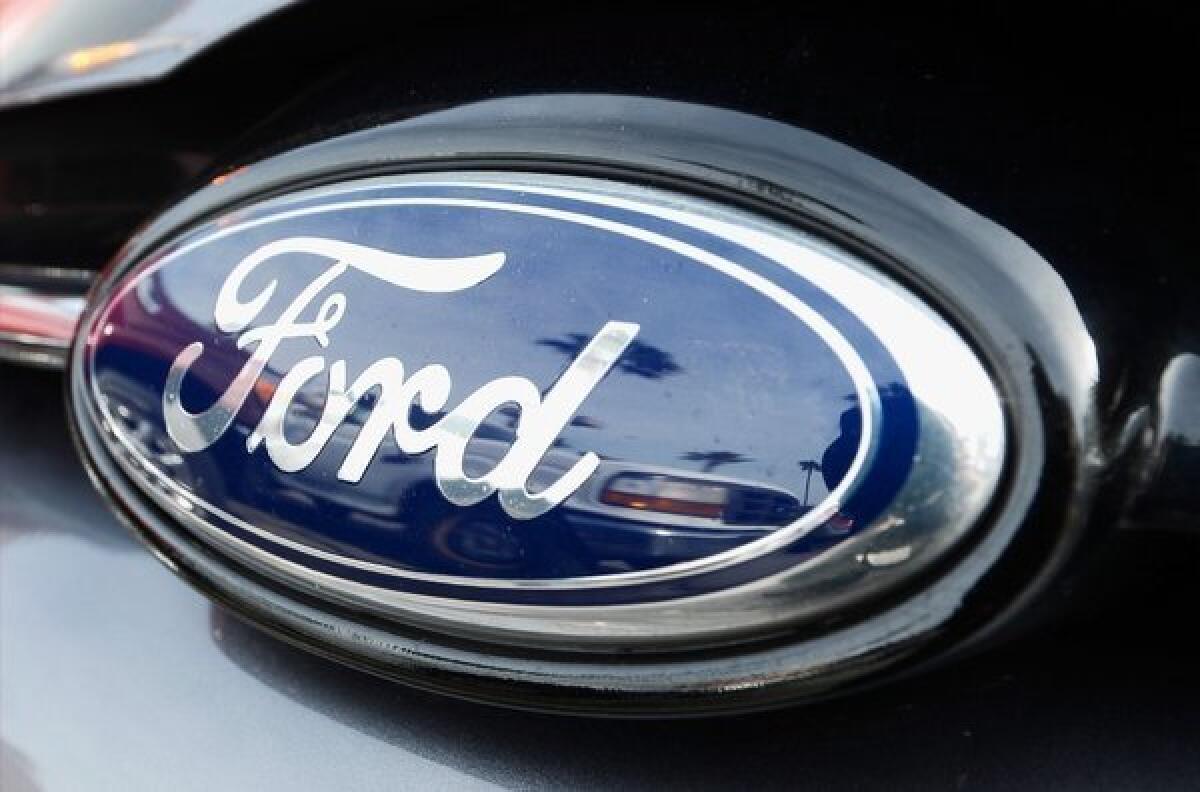Lawsuit alleges unintended acceleration in Ford cars, vans, SUVs

A lawsuit filed against Ford Motor Co. alleges that several Ford and Lincoln vehicles manufactured between 2002 and 2010 are subject to unintentional acceleration and also lack âadequate fail-safe systemsâ to prevent crashes.
The suit filed Thursday in federal court in West Virginia seeks class-action status on behalf of consumers in 14 states.
It describes situations in which Fordâs electronic throttle system allegedly caused vehicles to accelerate unexpectedly, leaving drivers unable to stop. It does not include any claims of wrongful death or personal injury.
Plaintiffs are seeking compensation for an alleged loss of vehicle value, arguing that they were forced to pay too much for cars with defects.
The lawsuit also alleges that Ford knew about the alleged defect and concealed the problem from consumers.
âWe allege that Ford knew about this problem and chose to put its own profits ahead of customer safety,â said Adam Levitt, a partner and head of the consumer-practice group at Grant and Eisenhofer, the Chicago law firm that filed the complaint.
Levitt added that âitâs clear from the number of affected vehicles that this is a widespread problem that goes across multiple models and years and impacts a substantial portion of the American driving public.â
Ford Motor Co. responded to the lawsuit with the following statement, indicating it had already worked with the U.S. National Highway Traffic Safety Administration to address what it called rare instances that could result in throttle problems:
âNHTSAâs work is far more scientific and trustworthy than work done by personal injury lawyers and their paid experts,â said the Ford statement.
âIn rare situations, vehicle factors, such as floor mats or broken mechanical components, can interfere with proper throttle operation,â the Ford statement added, âand manufacturers have addressed these rare events in field service actions.â
The suit is similar to one brought against Toyota Motor Corp. In February, Toyota reached a $29-million settlement of sudden acceleration claims with attorneys general from 29 states and one U.S. territory.
That agreement came after Toyota announced a record-setting $1.1 billion settlement of hundreds of class-action claims alleging that the automakerâs actions involving an acceleration problem had damaged the value of consumersâ vehicles.
The cars named in the Ford lawsuit and their model years are:
Ford vehicles: 2005-2007 models 500s; 2005-2009 Crown Victorias; 2005-2010 Econolines; 2007 2010 Edges; 2009-2010 Escapes; 2005-2010 Escape HEVs; 2005-2010 Expeditions; 2004-2010 Explorers; 2007-2010 Explorer Sport Tracs; 2004-2010 F-Series; 2009-2010 Flex; 2008-2010 Focus; 2005-2007 Freestyles; 2006-2010 Fusions; 2005-2010 Mustangs; 2008-2010 Taurus; 2008-2009 Taurus Xs; 2002-2005 Thunderbirds; and 2010 Transit Connects.
Lincoln vehicles: 2003-2006 LS; 2006-2008 Mark LTs; 2009-2010 MKS; 2010 MKTs; 2007-2010 MKXs; 2006-2010 MKZs; 2005-2009 Town Cars; and 2006-2010 Zephyrs.
Mercury vehicles: 2002-2005 Cougars (XR7); 2005-2009 Grand Marquis; 2009-2010 Mariners; 2005-2010 Mariner HEVs; 2006-2010 Milans; 2005-2007 Montegos; 2004-2010 Mountaineers; and 2008-2010 Sables.
ALSO:
Fisker furloughs workers to conserve cash
The parent apps: tracking your teens as they drive
Less-expensive models driving growth in luxury cars, SUVs
More to Read
Inside the business of entertainment
The Wide Shot brings you news, analysis and insights on everything from streaming wars to production â and what it all means for the future.
You may occasionally receive promotional content from the Los Angeles Times.











